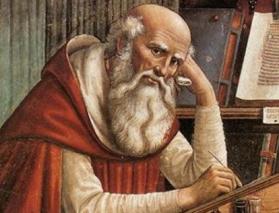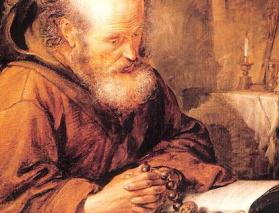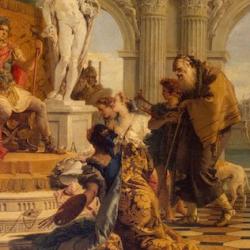A lovely passage on Providence from Augustine (City of God, 5.11). God cannot leave the kingdoms of men, “their dominations and servitudes,” outside His providence. That is not the kind of God He is. Instead:
“God supreme and true, with His Word and Holy Spirit (which three are one), one God omnipotent, creator and maker of every soul and of every body; by whose gift all are happy who are happy through verity and not through vanity; who made man a rational animal consisting of soul and body, who, when he sinned, neither permitted him to go unpunished, nor left him without mercy; who has given to the good and to the evil, being in common with stones, vegetable life in common with trees, sensuous life in common with brutes, intellectual life in common with angels alone; from whom is every mode, every species, every order; from whom are measure, number, weight; from whom is everything which has an existence in nature, of whatever kind it be, and of whatever value; from whom are the seeds of forms and the forms of seeds, and the motion of seeds and of forms; who gave also to flesh its origin, beauty, health, reproductive fecundity, disposition of members, and the salutary concord of its parts; who also to the irrational soul has given memory, sense, appetite, but to the rational soul, in audition to these, has given intelligence and will.”
Augustine leaves the best to the end: God has “not left, not to speak of heaven and earth, angels and men, but not even the entrails of the smallest and most contemptible animal, or the feather of a bird, or the little flower of a plant, or the leaf of a tree, without an harmony, and, as it were, a mutual peace among all its parts” (sine suarum partium convenientia et quadam veluti pace dereliquit).
This supports my contention about Augustine: Far from being a Manichean, his eyes are so dazzled by the loveliness of things that he worries they’ll distract him from the beauty of their Maker.














